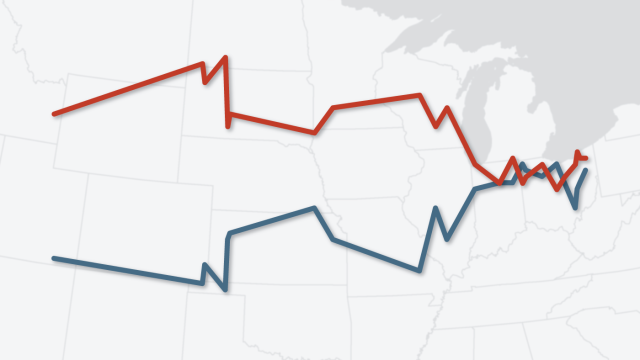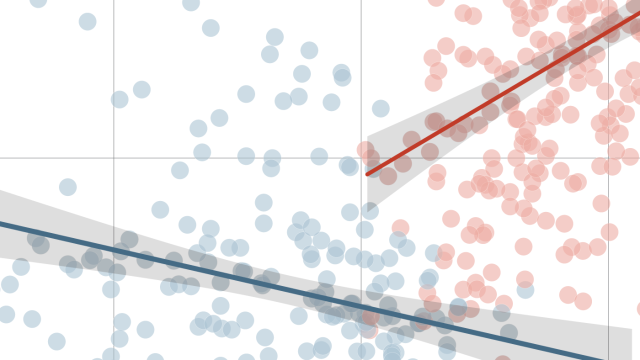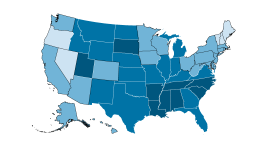

Email Newsletters as a Source of News
Three-in-ten Americans at least sometimes get news from newsletters, but many don’t read most of the newsletters they get. Unlike many other digital formats, similar shares of Americans across age groups get news from email newsletters.
Latest Publications
Most Popular
Politics & Policy

How Americans See Immigration Officers’ Behaviors and Civilian Actions
Most say it’s acceptable for people to record immigration arrests and warn others where enforcement efforts are happening.
Features
Artificial Intelligence

Teens, Social Media and AI Chatbots 2025
Roughly one-in-five U.S. teens say they are on TikTok and YouTube almost constantly. At the same time, 64% of teens say they use chatbots, including about three-in-ten who do so daily.

Republicans, Democrats now equally concerned about AI in daily life, but views on regulation differ
Overall, 44% of U.S. adults say they trust the U.S. a lot or some to regulate the use of AI effectively, while 47% have little to no trust in the U.S. to do this.

What we know about energy use at U.S. data centers amid the AI boom
Data centers accounted for 4% of total U.S. electricity use in 2024. Their energy demand is expected to more than double by 2030.

How People Around the World View AI
Most adults across 25 countries are aware of AI, and people are generally more concerned than excited about its effects on daily life.

About 1 in 5 U.S. workers now use AI in their job, up since last year
Workers younger than 50 and workers with a bachelor’s degree or more education are among the most likely to use AI in their job.
Religion

Catholicism Has Declined in Latin America Over the Past Decade
Growing numbers of Latin Americans are religiously unaffiliated, but belief in God remains high across the region.

Has there been a Christian revival among young adults in the U.K.? Recent surveys may be misleading
Despite the widely recognized decline of Christianity in the U.K., there have been persistent rumblings of a Christian resurgence.

If the U.S. had 100 people: Charting Americans’ religious beliefs and practices
See a profile of American religious beliefs and practices if the country were made up of exactly 100 adults.

Why Do Some Americans Leave Their Religion While Others Stay?
A majority of adults still identify with their childhood religion, but 35% don’t. Read about when and why Americans may switch faiths or stay.
News Habits & Media

Young Adults and the Future of News
U.S. adults under 30 follow news less closely than any other age group. And they’re more likely to get (and trust) news from social media.

Americans are following the news less closely than they used to
In 2016, 51% of U.S. adults said they followed the news all or most of the time, but that share fell to 36% in 2025.

More Americans prefer to watch the news than read or listen to it
A majority of Americans who prefer to watch the news (62%) say they prefer to get it from TV, rather than another platform.

News Influencers Fact Sheet
About one-in-five U.S. adults say they regularly get news from news influencers on social media, and this is especially common among younger adults.
Our Methods

U.S. Surveys
Pew Research Center has deep roots in U.S. public opinion research. Launched as a project focused primarily on U.S. policy and politics in the early 1990s, the Center has grown over time to study a wide range of topics vital to explaining America to itself and to the world.

International Surveys
Pew Research Center regularly conducts public opinion surveys in countries outside the United States as part of its ongoing exploration of attitudes, values and behaviors around the globe.

Data Science
Pew Research Center’s Data Labs uses computational methods to complement and expand on the Center’s existing research agenda.

Demographic Research
Pew Research Center tracks social, demographic and economic trends, both domestically and internationally.
Our Experts
“A record 23 million Asian Americans trace their roots to more than 20 countries … and the U.S. Asian population is projected to reach 46 million by 2060.”

Neil G. Ruiz,
Head of New Research Initiatives
Methods 101 Videos

Video: How do polls work when no one answers the phone anymore?
Ever wonder how we collect our data? Today, most polls are conducted online. But, most pollsters reject the idea that “one size fits all” when it comes to polling, so we still use phone calls or mail to reach people.
Signature Reports

Decline of Christianity in the U.S. Has Slowed, May Have Leveled Off
America’s News Influencers
Race and LGBTQ Issues in K-12 Schools
Representative Democracy Remains a Popular Ideal, but People Around the World Are Critical of How It’s Working
Americans’ Dismal Views of the Nation’s Politics
Measuring Religion in China
Editor’s Pick

Americans’ Social Media Use 2025
Trump has already issued more executive orders in his second term than in his first
Americans increasingly see legal sports betting as a bad thing for society and sports
What the data says about food stamps in the U.S.
How the Global Religious Landscape Changed From 2010 to 2020
Teens, Social Media and Mental Health
Immigration & Migration

Migrant encounters at the U.S.-Mexico border are at their lowest level in more than 50 years
Growing shares say the Trump administration is doing ‘too much’ to deport immigrants in the U.S. illegally
Key facts about U.S. Latinos
U.S. Unauthorized Immigrant Population Reached a Record 14 Million in 2023
What the data says about immigrants in the U.S.
International Affairs




















